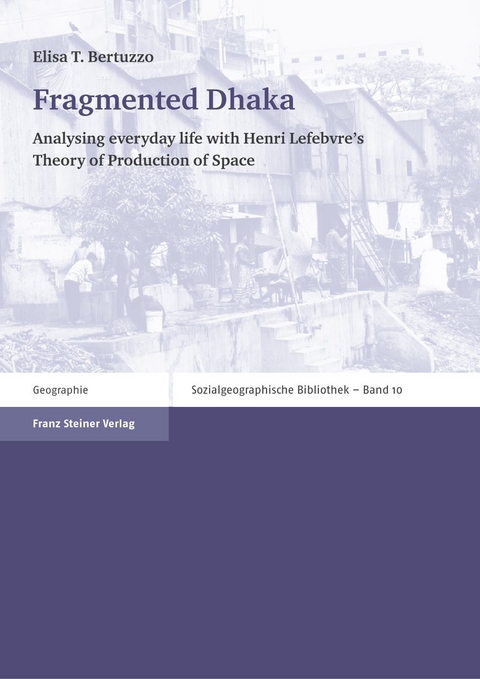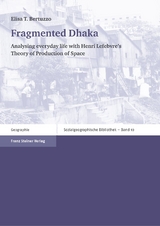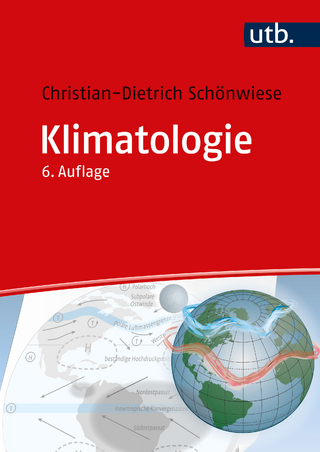Fragmented Dhaka
Analysing everyday life with Henri Lefebvre’s Theory of Production of Space
Seiten
2009
Franz Steiner Verlag
978-3-515-09404-7 (ISBN)
Franz Steiner Verlag
978-3-515-09404-7 (ISBN)
Bangladesh s capital city Dhaka is one of the world s fastest growing cities, passing from a population of one million to twelve million people in its extended area within three decades (1970 2000). This confronts its inhabitants, observers as well as planners with contradictions that ask for redefining our ways of living in and thinking about the city.
In particular, Western conceptions of public space and urban societies are challenged by a symptomatic fragmentation.
This empirical study observes the megacity s everyday spaces and situations directly and with a non-generalising approach. By means of ethnographic field research it describes the production of "enriched" or multifunctional spaces through everyday life practices, recognising in the inhabitants appropriation and adaptation processes a potential for sustainable mixed forms of urban development.
For the first time, Henri Lefebvre s theory of production of space is applied with all of its implications to an empirical study. City and urbanity emerge then as the result of three continuously interacting and interdependent production processes: physical, mental and social.
In particular, Western conceptions of public space and urban societies are challenged by a symptomatic fragmentation.
This empirical study observes the megacity s everyday spaces and situations directly and with a non-generalising approach. By means of ethnographic field research it describes the production of "enriched" or multifunctional spaces through everyday life practices, recognising in the inhabitants appropriation and adaptation processes a potential for sustainable mixed forms of urban development.
For the first time, Henri Lefebvre s theory of production of space is applied with all of its implications to an empirical study. City and urbanity emerge then as the result of three continuously interacting and interdependent production processes: physical, mental and social.
"So leistet die Autorin einen nicht zu unterschätzenden Beitrag zur aktuellen sozialwissenschaftichen Debatte um geeignete theoretische Zugänge zu Raum und Stadt und ihre Umsetzung in Form von empirischen Studien. Es bleibt zu hoffen, dass Bertuzzos Beispiel noch weitere Arbeiten folgen." Markus Keck Die Erde 142, 2011/3
| Erscheint lt. Verlag | 26.8.2009 |
|---|---|
| Reihe/Serie | Sozialgeographische Bibliothek |
| Zusatzinfo | 6 Abbildungen, 13 Zeichnungen, 4 Schemata und 16 Tafeln mit 6 Farbabbildungen, 16 Farbfotos |
| Sprache | englisch |
| Maße | 170 x 240 mm |
| Gewicht | 434 g |
| Themenwelt | Naturwissenschaften ► Geowissenschaften ► Allgemeines / Lexika |
| Naturwissenschaften ► Geowissenschaften ► Geografie / Kartografie | |
| Schlagworte | Dhaka • fragmented • Geographie • Hardcover, Softcover / Geowissenschaften/Allgemeines, Lexika • Sozialgeographie • sozialgeographische Bibliothek |
| ISBN-10 | 3-515-09404-0 / 3515094040 |
| ISBN-13 | 978-3-515-09404-7 / 9783515094047 |
| Zustand | Neuware |
| Haben Sie eine Frage zum Produkt? |
Mehr entdecken
aus dem Bereich
aus dem Bereich
Physische Geographie und Humangeographie
Buch | Hardcover (2020)
Springer (Verlag)
CHF 153,95




